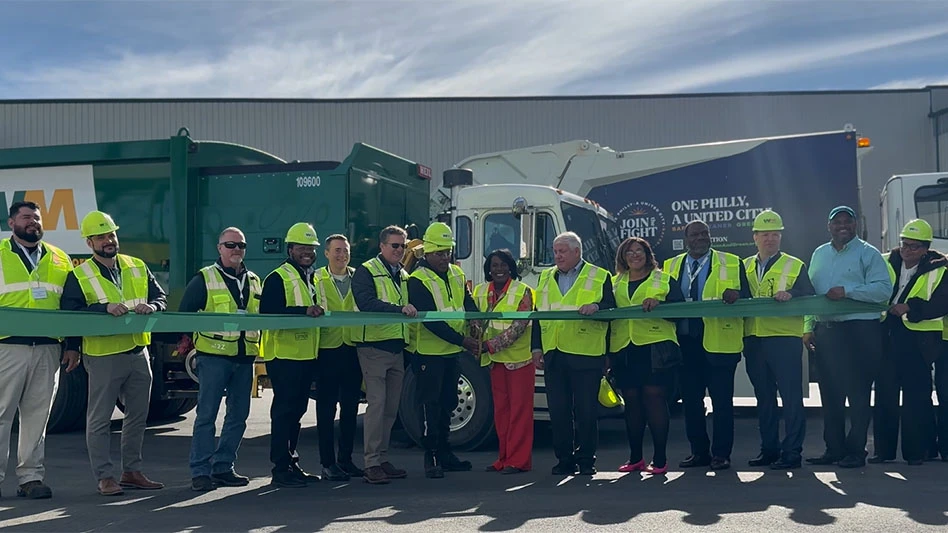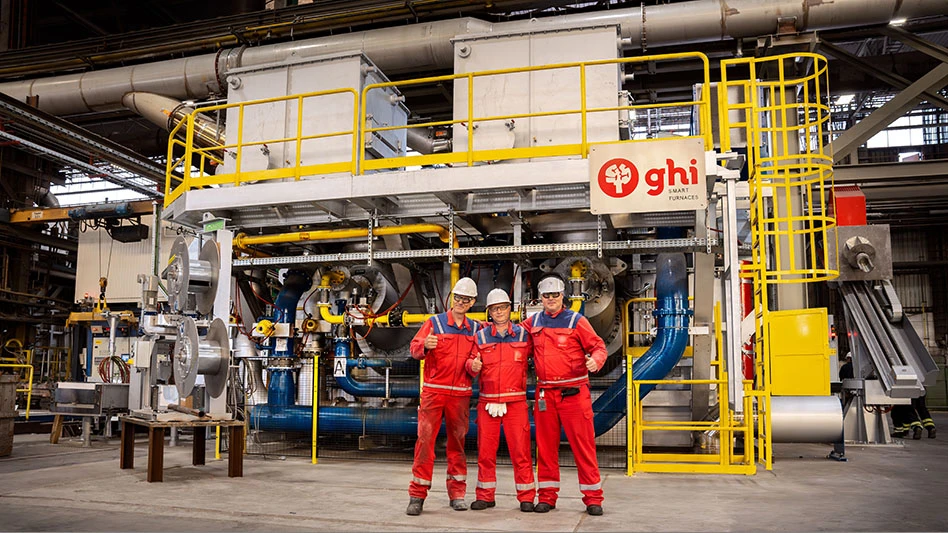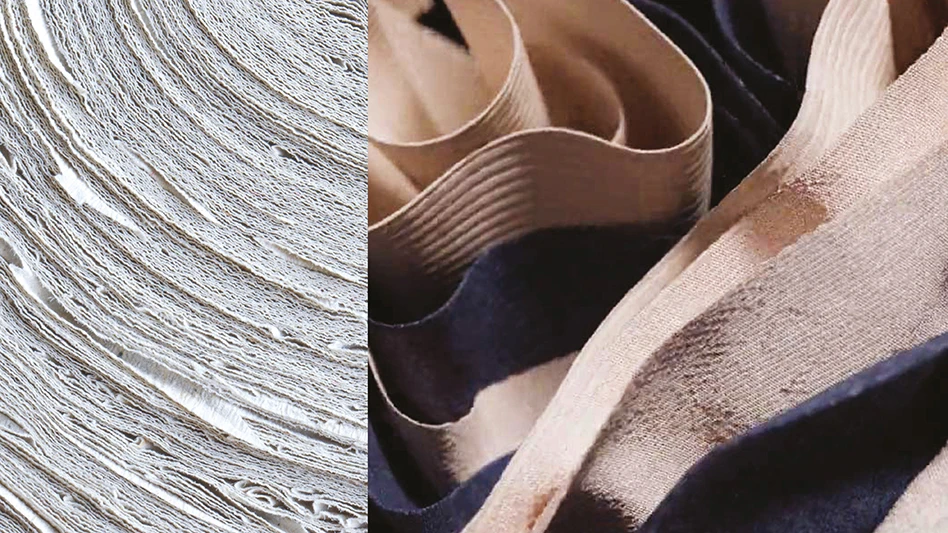
When Saifee Jani established Paper Link International in Dubai, United Arab Emirates (UAE), he already had international business experience connecting the UAE’s Gulf Cooperation Council (GCC) region with the Indian subcontinent and other parts of the world.
In the subsequent two decades, the founder and managing director of Paper Link has drawn upon that experience and the support of several family members to expand the paper industry subsectors Paper Link is involved with and the geographic reach of the substantial family business.
According to Saifee’s son, Abilfazal Jani, director of secondary fiber at Paper Link, the Jani family has added a paper mill in India to its diverse presence in the global forest products sector. Paper Link and mill company Jani Sales Pvt. Ltd. now have more than 700 employees combined.

Markets near and far
Saifee and Abilfazal are just two of several family members helping oversee the diverse but connected business units. Others involved are Abiali Jani, director of Jani Sales, and Abizer Jani, director of Paper Link.
The Paper Link organization, beyond its own business units, works with numerous allies to market finished and semifinished paper, with one of those alliances preceding the creation of Paper Link itself.
Abilfazal says before the company was established in 2000 to put an emphasis on recovered paper, his father had been marketing paper made by India-based International Tobacco Corp. in the Indian market region.
On the finished paper side, Paper Link also represents two companies in India—Mehali Papers Pvt. Ltd., which produces coated duplex board, and Shree Gajanan Paper & Boards, which makes kraft paper.
Paying more attention to recovered paper was a natural step, Abilfazal says. “We are a closed-loop cycle” provider for customers in India, he adds. “We can purchase and ship scrap paper for them and can sell their finished paper. That changes an entire perspective from the Indian side.”
Longstanding relationships are a plus in the specialized world of matching fiber supplies with smaller-volume mills in India, Abilfazal says.
“Recycling companies can struggle selling into India,” he adds. “But these customers also work with us from a finished product sales side.” In addition to providing product knowledge, this creates an incentive for mutually respectful professional relationships.
Paper Link also separates itself by its rigid attention to the quality of the scrap paper it ships to those same customers, according to Abilfazal, who says, “We avoid B- and C-grade quality paper, and thus avoid claims.”
Finding suitable amounts of high-quality recovered fiber means both Paper Link and Abilfazal have established a presence in several markets that have a scrap paper surplus that potentially can be tapped.
For the past several years, Abilfazal has been based in the United Kingdom, where Paper Link procures an average of 200,000 tons per year for shipment. While the U.K. might remain a viable market, he expresses concern for the future of European Union sourcing in light of pending EU regulations that could make shipping scrap paper overseas more difficult.
Thus, Abilfazal is planning a move to the United States, with his eye on establishing an office in the New York area. “We are looking at growing the scrap paper segment in the U.S., ideally doubling it from 5,000 tons per month to 120,000 tons per year shortly after I arrive,” he says.
The company’s GCC presence remains sizable, with material coming not only from the UAE but also from Kuwait. Paper Link also collects old corrugated containers (OCC) at its one recycling facility in Kuwait.
Some of the fiber procured by Abilfazal and his team is destined for the Jani family’s own 36,000-ton-per-year mill in the state of Maharashtra, India.

Producing and specializing
The Jani Sales mill in Maharashtra has been set up with the ability to produce several different grades of paper, an operational aspect Abilfazal says is vital in India’s fast-changing market. Saifee oversees the mill as well as the Jani Sales organization.
The mill’s production capacity, which uses Italian-made technology, can be switched from machine-glazed kraft grades in varying thicknesses to poster grades to tissue grades at different levels of thickness and brightness.
“Our ability to shift grades completely helps us,” Abilfazal says. “We can run brown grades and collect orders for white in the meantime, and vice versa.”
In India, known for its fragmented collection of numerous smaller mills, “We are seeing overcapacity and overproduction; that was never the case previously,” Abilfazal says.
“A lot of smaller players are competing with small costs of production,” he adds. “That is eating up the market, including in the duplex board market, which has become sluggish.”
Thus, when a market seems flooded, the Jani Sales mill has the ability to output tissue if that sector is more balanced. Another bright spot Abilfazal points to involves kraft packaging grades.
“Single-use plastic being banned is good for mills making kraft grades, which ours can do,” Abilfazal says. “Moving forward, we think this is going to be one of the booming markets. Some single-use plastic items have been banned in Maharashtra. Demand for kraft paper grades is increasing.”
That is not to say Paper Link or the Jani family sees smooth sailing throughout the 2020s. In addition to EU restrictions and mill overcapacity in India, Abilfazal says new mill capacity coming online in North America will make his job there harder.
“I think new recycled capacity coming from Cascades, Domtar and Pratt means those companies will buy more fiber and keep it domestic,” he says. “That will remove volume from its export potential.”
Like most traders, Abilfazal is not a fan of price volatility for OCC or other fiber grades. “I miss the market when the increase was $5 per ton and things were stable,” he says. “Seeing $30 and $40 drops is challenging.” Of some comfort, he notes, have been recent declines in container shipping rates.
Paper Link can weather these challenges, Abilfazal says, in part by sticking to a core tenet: “We have developed the tagline ‘Where paper meets quality.’ We have been focused completely on quality and nothing else. That is really the only philosophy we follow, and quality remains our main asset.”
Abilfazal personally will be focusing on efforts to increase the company’s access to North American fiber supplies. He says the wider Jani family also has additional expansion opportunities in the works that he says cannot yet be disclosed, but notes, “We are still evaluating everything."
Considering the impressive track record of Paper Link and the Jani family, it seems more than likely the evaluation process will involve another important connection between markets and industry sectors.

Explore the December 2022 Paper Recycling Supplement Issue
Check out more from this issue and find your next story to read.
Latest from Recycling Today
- ReElement, Posco partner to develop rare earth, magnet supply chain
- Comau to take part in EU’s Reinforce project
- Sustainable packaging: How do we get there?
- ReMA accepts Lifetime Achievement nominations
- ExxonMobil will add to chemical recycling capacity
- ESAB unveils new cutting torch models
- Celsa UK assets sold to Czech investment fund
- EPA releases ‘National Strategy to Prevent Plastic Pollution’





